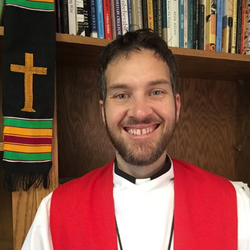WHo Was Paul in the Bible? The Apostle Who Shaped Christianity

Written by Keith Long, MDiv
Author | Pastor | BE Contributor
Verified! See our editorial guidelines
Verified! See our guidelines
Edited by Laura Robinson, Ph.D.
Date written: June 10th, 2023
Disclaimer: The views and opinions expressed in this article belong to the author and do not necessarily match my own. - Dr. Bart D. Ehrman
Who was Paul in the Bible? Apart from Jesus, no person is more important to the formation of Christianity than the Apostle Paul.
Without Paul, I doubt that the largest religion in the world would have ever lasted past the second century. Most of the New Testament would not exist because no matter how you spin it, Paul’s letters were the catalyst behind Christian thought and theology.
Thanks to one man’s unwavering dedication and tireless work ethic, the followers of “the Way” expanded from a mere twelve initial believers to over a billion and continue to thrive as a relevant religious movement in the twenty-first century.
Sharing Paul's Legacy as a Pastor
As a pastor, I spend most of my time telling people who Jesus was, but Paul’s legacy is nearly as important when understanding the importance of Jesus and his mission.
The curious would find more to grapple with in the writings of Paul than in the Gospels of Matthew, Mark, Luke, and John combined. While the Gospels talk about Jesus’s life, Paul’s letters talk about Paul’s life as he lived it in real-time in Christ’s wake.
Paul is a rare first-person point of view about how Jesus impacted his life’s work, as well as his intimate thoughts and beliefs both about Jesus and from Jesus personally.
The Gospel authors cannot claim to have communicated with the Lord, as Paul claims in the books he wrote. This assertion elevates his significance. In this article, I delve into Paul’s background, his journey, and his eventual recognition as the initial missionary of Christianity, possibly being our sole firsthand witness to the resurrected Jesus.

Let’s start with the meaning of a name. Was Paul really his name? Yes. And no. In Hebrew, Paul’s name was Saul. In Greek, the New Testament language, Saul was often changed to Paul, though the exact reason remains unknown.
This isn’t all that important in terms of Paul’s story, except that some Christians assume the name change was intentional because Paul converted from Judaism to Christianity. The idea was that the name Saul possibly acted as a reminder of his previous role as a relentless persecutor of Christians, a chapter in his life that he wished to distance himself from.
However, no Bible verses substantiate that nor indicate Paul changed his name. Instead, it appears people just called him by both names throughout his life, like how someone might use the names “Rob” and “Bob” interchangeably.
In my personal opinion, I find the entire idea quite absurd that he would alter his name by just one letter to differentiate between two vastly distinct identities. So when you ask yourself, who was Paul in the Bible, wouldn’t it have made more sense for him to choose a name such as Walter or Keith to provide greater separation? Oh well. I digress.
Who Was Paul in the Bible? Some Background
According to the Apostle Paul himself, he “was circumcised on the eighth day, a member of the people of Israel, of the tribe of Benjamin, a Hebrew born of Hebrews; as to the law, a Pharisee; as to zeal, a persecutor of the church; as to righteousness under the law, blameless.” (Philippians 3:4-6)
The author of the Book of Acts, whom most scholars agree was the same writer of the Gospel of Luke, revealed Paul was a “Jew from Tarsus, Cicilia, and a citizen of an important city” (Acts 21:39) who could speak both Greek and Hebrew.
Luke gave several biographical nuggets regarding Paul’s background, namely that he was “brought up in this city at the feet of Gamaliel, educated strictly according to our ancestral law” (Acts 22:3) and that Paul declared himself a Jewish-born Roman citizen (Acts 22:28).

Who Is Paul in the Bible: A Comprehensive Picture
When we consider the entirety of the New Testament in order to form a comprehensive picture of Paul he emerges as a remarkably impressive character. However, it is important to exercise caution and critically evaluate our sources, as there is a significant time gap between the earliest writings of Paul and his later works, especially the Book of Acts, which some argue could be renamed as the Book of Paul’s Acts.
In another blog post discussing the historical context of the New Testament, it is suggested that Luke-Acts was probably published near the conclusion of the first century. This extended timeframe allowed for the memories and influence of Jesus and Paul to develop and give rise to narratives that occasionally include exaggerated elements or adopt a more mythological tone rather than remaining strictly historical.
Don’t get me wrong, the sources not written by Paul are important too, but if you want the most accurate depiction, it is best to rely on the information the apostle personally supplied, which from my perspective, is sufficient.
What was the first Christian theologian’s personality like?
If I were to answer the question, who was Paul in the Bible? I would say he was an interesting and multi-faceted character… and if Paul were in the pulpit today, he probably wouldn’t be well-liked.
What Paul had to say about Jesus, the Church, the scriptures, and the Spirit was exceptional. Paul’s writings convey him as an intelligent, hot-tempered, insecure, and stubbornly opinionated orator and teacher. There were likely few others as zealous for the message of Jesus as Paul.
But Paul didn’t always have the best “bedside manner” regarding conflict resolution. At times Paul was confrontational (Galatians 2:11), and at other times tender-hearted (Philippians 1:8), making his demeanor slightly unpredictable.
We only get Paul’s side of things through his letters. However, he did not react favorably to those who doubted his authority as an apostle. Instead, Paul repeatedly emphasizes his qualifications as a messenger of Jesus, highlighting the hardships he endured to spread the Gospel. For example, he feverishly defended his ministry in 1 Thessalonians 2:2; Romans 5:3.
In 2 Corinthians 10, fieriness aside, what stands out to me about Paul was his wonder, gratitude, and at times his supreme confidence and borderline arrogance regarding the message he felt dutifully bound to proclaim.
Admittedly, it isn’t easy to piece together the entirety of his story. Still, he writes with an unparalleled blend of urgency and boldness that many attribute to his supernatural visionary revelation of Jesus the Christ he had on “the road to Damascus” (Acts 9).
Paul's encounter With Jesus
I find Paul’s decision to dedicate himself to the propagation of the Gospel highly intriguing. His unwavering dedication and perseverance, combined with his profound encounters detailed in 2 Corinthians 12 and the life-altering moments depicted in Acts 9, persuade me that his rise to power was primarily influenced by what he witnessed and experienced rather than solely relying on his words and actions.
Acts 9:3 Now as he was going along and approaching Damascus, suddenly a light from heaven flashed around him. 4 He fell to the ground and heard a voice saying to him, “Saul, Saul, why do you persecute me?” 5 He asked, “Who are you, Lord?” The reply came, “I am Jesus, whom you are persecuting. 6 But get up and enter the city, and you will be told what you are to do.”
9 For three days he was without sight and neither ate nor drank…17 So Ananias went and entered the house. He laid his hands on Saul and said, “Brother Saul, the Lord Jesus, who appeared to you on your way here, has sent me so that you may regain your sight and be filled with the Holy Spirit.” 18 And immediately something like scales fell from his eyes, and his sight was restored. Then he got up and was baptized, 19 and after taking some food, he regained his strength.
No one can answer who Paul was better than Paul–and I, for one, am inclined to let him speak for himself. No sermon is harder to preach than when I am asked to use scriptures that Paul wrote. He does just fine by himself when it comes to answering questions. So when we ask, “Who was Paul in the Bible?” let me just turn it over to him to respond.
How Would Paul Describe his Role?
I’m guessing he would point me to the first chapter of Galatians and the color commentary for the Book of Acts version of Damascus and tell me that by God’s grace, he was set apart to proclaim Jesus among the Gentiles.
Period. End of story.
And here we are, many of us grateful Gentiles, still striving to learn about Jesus and those who first knew and loved him.
If you are hungry for more about Paul and his role in the early Church, then perhaps it’s time to become a subscribing member of the Bart Ehrman community or, at the very least, to listen to Pauline scholar Dr. James Tabor who guest lectured on Bart’s new podcast in November of 2022.
From there, I recommend Bart’s new courses on Paul, which are coming out soon.
FREE COURSE!
WHY I AM NOT A CHRISTIAN
Raw, honest, and enlightening. Bart's story of why he deconverted from the Christian faith.
Over 6,000 enrolled!

